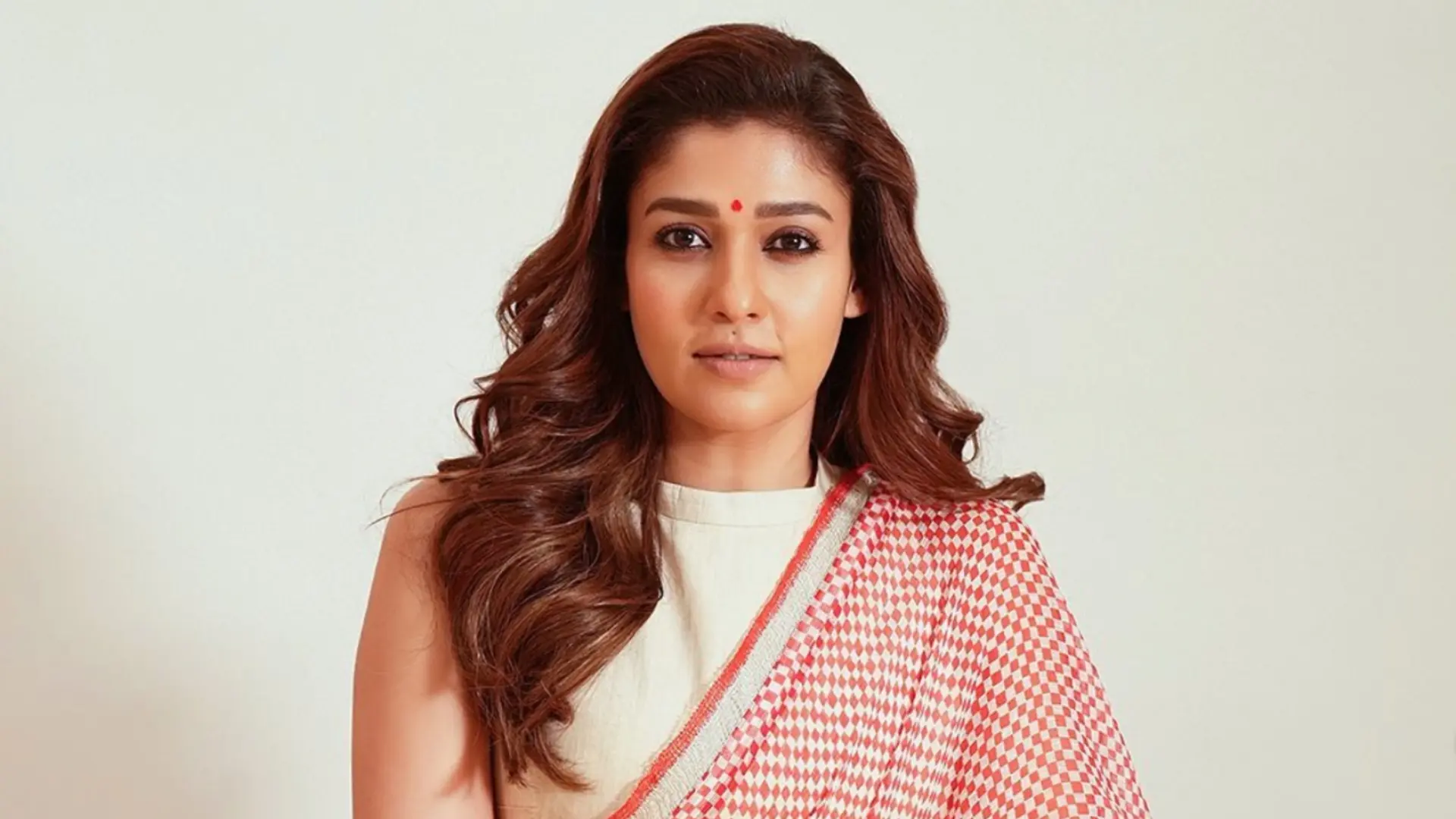I know there were grey areas but my only aim was the truth: Solvathellam Unmai’s Lakshmy Ramakrishnan
While Sollvathellam Unmai may have catapulted Lakshmy Ramakrishnan to instant fame, it’s interesting to note that television or films were the last things on her mind, to begin with. HerStory speaks to the director and reality TV star, who is a household name in Tamil Nadu.
1559561795558.png?fm=png&auto=format)
Lakshmy Ramakrishnan - actor, director and talk show anchor
“Ennamma, ippidi panreengale maa? (Why, why, are you doing this?)” – this is perhaps one of the most striking dialogues from a controversial Tamil TV show that anchor Lakshmy Ramakrishnan turned right on its head, with a controversial mix of drama, emotion, and street-style justice.
Lakshmy walked out of the show after seven years in 2018, but not without proving to her viewers and the world that a reality show can mirror life in so many ways.
Sollvathellam Unmai gave its viewers stories -- of AIDS patients, murderers, cheating husbands and wives -- where real came to reel with arguments, debates, discussions, even a temporary injunction by the High Court and, in many cases, justice.
A philandering husband confronted by his wife in the presence of the other woman may make for good TRP, but Lakshmy insists that the show has changed many lives – for the better.
“There were many people who didn’t want the show to go on air. There were a lot of factors at play in all the stories – we have had to rescue victims through windows and backdoors to take them to the police for justice. But the one thing that kept me grounded is bringing out the truth,” Lakshmy tells me over a long and interesting phone call.
In search of truth
She admits that there are many grey areas. “We are in a society where human rights are still a distant dream. So, in many cases, liberal logic will not work. So for instance, it was important for me to tell the story of a 49-year-old man abusing a nine-year-old child. The platform was not exploiting them, they chose to come to me with their stories because they felt the inherent justice system is flawed,” Lakshmy says.
She is emphatic that whatever she did through the show was out of genuine concern, without any effort at manipulation. “I did not worry about TRP or my image. Nothing mattered to me except the lives of the participants who came on my show,” she adds.
While Sollvathellam Unmai may have catapulted Lakshmy to instant fame, it’s interesting to note that television or films were the last things on her mind, to begin with.
Born and raised in a typical Brahmin family in Palakkad, Lakshmy got engaged at the age of 16 and was married off at 18. Life in a typical joint family in Coimbatore along with her in-laws brought with it an identity crisis. “I was afraid of getting lost in the crowd,” she says of those times.
Lakshmy recalls, “I wanted to fight to make my presence felt. I lived in a house of disciplined people where raising one’s voice in dissent was unheard of. Six months into my marriage, I spoke out against something and that was the last straw for them.”
Finding her voice
1559562075351.png?fm=png&auto=format)
Lakshmy Ramakrishnan in one of her films
The family then asked Lakshmy and her husband, Ramakrishnan, to live on their own, and that meant subsisting on a meagre stipend.
“I wanted to help my husband but did not know what to do. I spoke little English, had no self-confidence, and realised the only thing I was good at was designing clothes. I enrolled in a fashion designing course. I began with one sewing machine, designed clothes, and thus Creations happened,” she recalls.
Along with designing clothes, Lakshmy also started organising theme parties for birthdays and other events. Creations was really taking off.
In 1992, her husband Ramakrishnan decided to take up a job in Muscat. And in the blink of an eye, she had to shut down Creations. By then, she had her third daughter in 1994 and was content with child-rearing, taking part in different competitions, and thus kept herself busy.
In 1995, a chance discussion with a few of her friends led to Kids Camp – one of the largest event management companies in the country. Lakshmy began by organising summer camps for children and later branched out into corporate events, which were hugely successful.
“My success was noticed by a highly influential Omani businessman who then went on to make my life hell. His not-so-friendly overtures made me both uncomfortable and scared. When I resisted his advances, he threatened me,” she recalls.
And just like that, she closed down the successfully-running Kids Camp to return to India with her children. “I was looking forward to a retired life. I won the Mrs Rotary contest in Coimbatore and regained my lost confidence,” she says.
But, out of the blue, she was offered a role by Malayalam director Lohitadas who wanted to use her house for shooting Chakkara Muthu. Lakshmy had finally found her niche, or calling. She played supporting roles in various films and also took up the directorial baton for Tamil films with Aarohanam, Nerungi Vaa Mutham, Ammani, and the recent House Owner.
The pursuit of justice
1559562115289.png?fm=png&auto=format)
Lakshmy Ramakrishnan
Sollvethellam Unmai happened in between, but she was disillusioned by the end of it all. “The breakdown of the system, the unfairness of how justice is served, the hypocrisy in society, viewing everything through the coloured glass of casteism is what we see in today’s world, and it’s disheartening,” she says.
But an incident a day before our phone call, she says, is one among many that has moved her. A pregnant woman, deserted by her husband and wronged by her family, came to the television office - crying, insisting that she would speak only to Lakshmy. “The incident has shaken me. I spoke to her and gave her some advice. I would definitely want to meet her. Who will talk about these ordinary people who have nowhere to go?” she asks.
Lakshmy has been a strong advocate of women’s issues, especially in the film industry, and believes the #MeToo movement has helped women raise their voices against harassment and abuse.
Right now, House Owner, her film centred on the floods in Chennai in December 2015 is all set for release this month.
Of the future, Lakshmy says, “I don’t plan anything. I take life as it comes. I am looking forward to welcoming my first grandchild.”


1559562115289.png?mode=crop&crop=faces&ar=2%3A1&format=auto&w=1920&q=75)
1559555633044.png?fm=png&auto=format&h=100&w=100&crop=entropy&fit=crop)




![[YS Exclusive] Y Combinator-backed healthtech startup Farmako raises $1.6M for expansion](https://images.yourstory.com/cs/2/a09f22505c6411ea9c48a10bad99c62f/Imageignn-1723390689038.jpg?mode=crop&crop=faces&ar=1%3A1&format=auto&w=1920&q=75)

